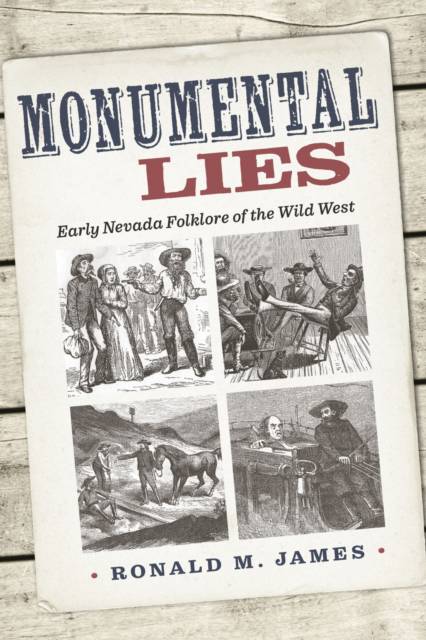
- Retrait gratuit dans votre magasin Club
- 7.000.000 titres dans notre catalogue
- Payer en toute sécurité
- Toujours un magasin près de chez vous
- Retrait gratuit dans votre magasin Club
- 7.000.000 titres dans notre catalogue
- Payer en toute sécurité
- Toujours un magasin près de chez vous
Description
A playful embrace of tall tales and exaggeration, Monumental Lies explores the evolution of folklore in the Wild West. Monumental Lies: Early Nevada Folklore of the Wild West invites readers to explore how legends and traditions emerged during the first decades following the "Rush to Washoe," which transformed the Nevada Territory after in 1859. During this Wild West period, there was widespread celebration of deceit, manifesting in tall tales, burlesque lies, practical jokes, and journalistic hoaxes. Humor was central, and practitioners easily found themselves scorned if they failed to be adequately funny. The tens of thousands of people who came to the West, attracted by gold and silver mining, brought distinct cultural legacies. The interaction of diverse perspectives, even while new stories and traditions coalesced, was a complex process. Author Ronald M. James addresses how the fluidity of the region affected new expressions of folklore as they took root. The wildly popular Mark Twain is often a go-to source for collections of early tall tales of this region, but his interaction with local traditions was specific and narrow. More importantly, William Wright--publishing as Dan De Quille--arose as a key collector of legends, a counterpart of early European folklorists. With a bedrock understanding of what unfolded in the nineteenth century, James considers how these early stories helped shaped the culture of the Wild West.
Spécifications
Parties prenantes
- Auteur(s) :
- Editeur:
Contenu
- Nombre de pages :
- 252
- Langue:
- Anglais
- Collection :
Caractéristiques
- EAN:
- 9781647791162
- Date de parution :
- 19-09-23
- Format:
- Livre broché
- Format numérique:
- Trade paperback (VS)
- Dimensions :
- 152 mm x 226 mm
- Poids :
- 317 g







